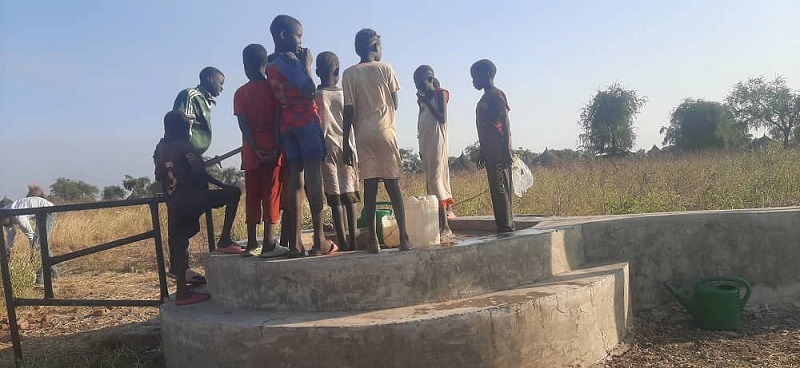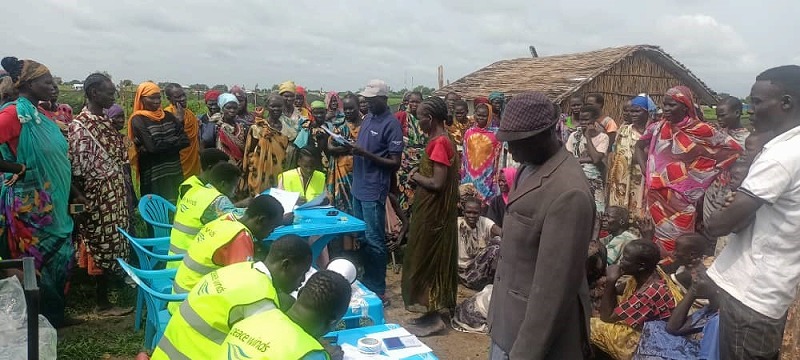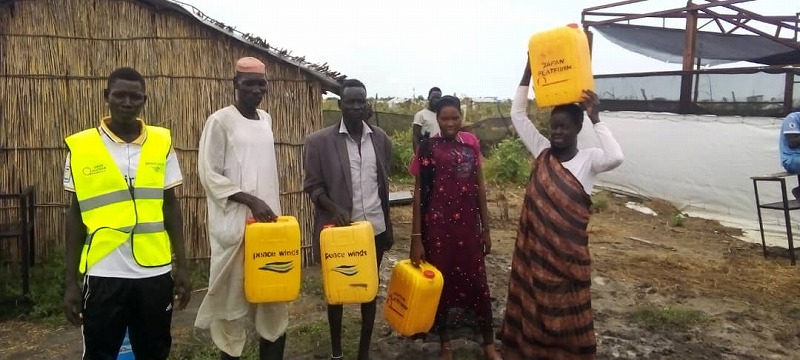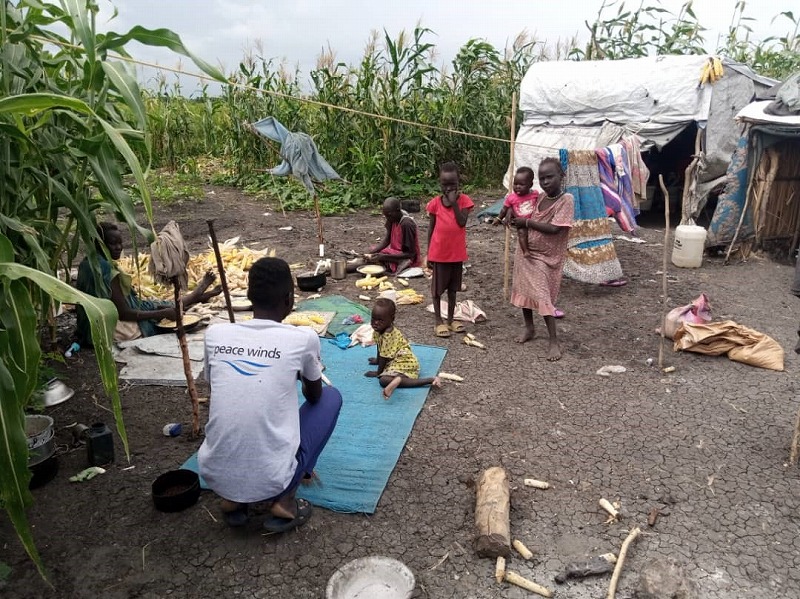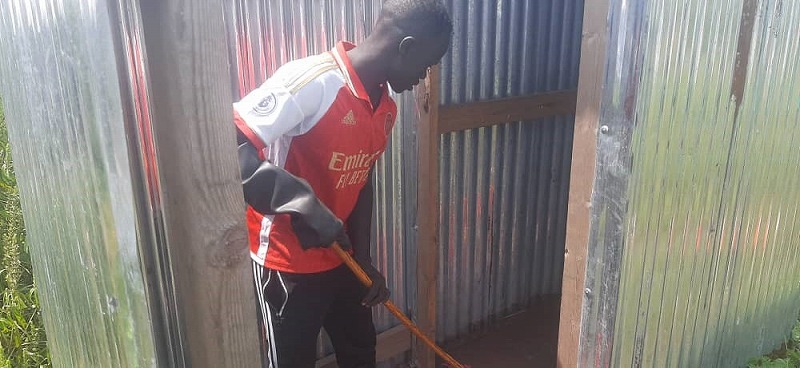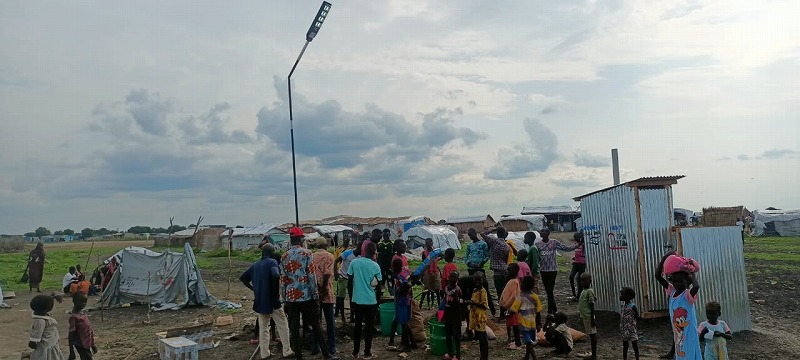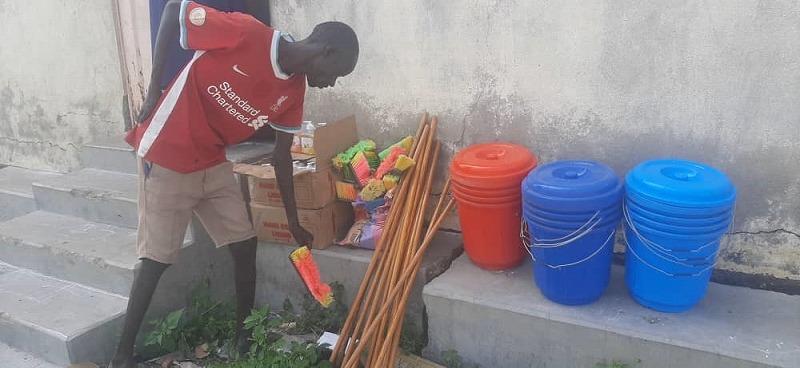Water, Sanitation, and Hygiene Activities for Displaced Persons in South Sudan
Peace Winds teams in South Sudan recently completed a six-month water supply and sanitation project for internally displaced persons (IDPs) in the Hai Sabab IDP settlement in Melut County. Thanks to the help of the residents and local community, IDPs now have access to clean water, toilets, and hygiene education.
Water, sanitation, and hygiene have presented challenges for Hai Sabab. The settlement was developed in response to the influx of displaced persons fleeing to the Kodok, Malakal, and Melut districts from violence in Fashoda County in the north. Because it was established hastily as an emergency response, the camp did not have a source of clean water. Existing water wells and pumps nearby were broken, and residents were forced to collect water from reservoirs. In response, Peace Winds repaired the water wells and raised the foundation so they would be less susceptible to flooding. Handrails have also been added to the stairs so that elderly evacuees can collect water more safely.
Even when residents have access to clean water, another challenge is that of the containers used to store it, which can often be dirty or damaged. Peace Winds distributed new water containers to them, with a particular focus on the elderly and disabled residents, to ensure their water will stay clean after they retrieve it.
In addition to providing clean water, Peace Winds carried out hygiene education activities in the Hai Sabab camp. The Upper Nile State is prone to flooding, and this combined with poor sanitary conditions makes it particularly easy for infectious diseases to spread. To maintain a more sanitary environment, our teams in South Sudan helped establish a hygiene awareness committee. This group of residents speaks to other IDPs at their homes or at public places like markets and water stations. The committee has been working to educate their peers on practices such as proper hand-washing, toilet use, and regularly cleaning water containers.
Finally, Peace Winds built toilets in the Hai Sabab camp as part of the recent program. Prior to this, toilets in the camp were simple, unsanitary, and few in number relative to the number of residents. Peace Winds built toilets with privacy sheds as well as solar-powered lights, making it possible for residents to use them after dark with peace of mind. Peace Winds staff also distributed cleaning supplies so that families would be able to clean and maintain their own toilets.
Although the recent water, sanitation, and hygiene program has ended, Peace Winds maintains a presence in South Sudan and will continue working to serve those in need following crises and natural disasters. This program was made possible by support from Japan Platform and by contributions from individual donors. We are grateful for your continued support.
